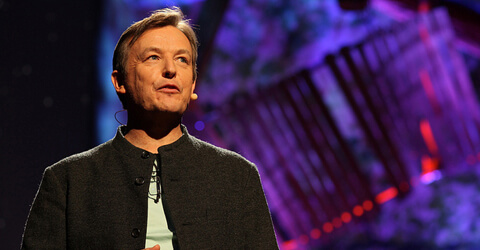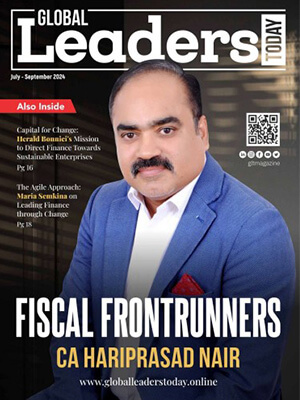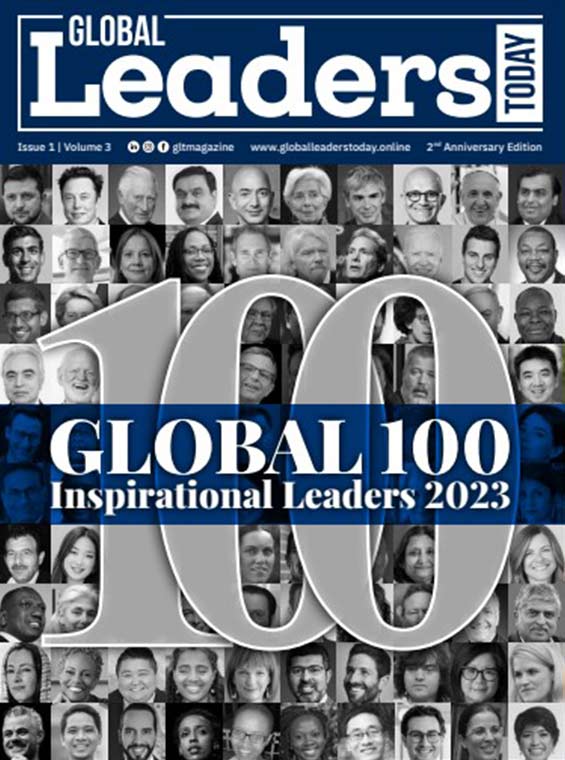Chris Anderson is the curator of the TED Conference and has developed it into a platform for identifying and disseminating ideas that will help the masses grow and evolve. ‘TED’ is a nonprofit devoted to sharing valuable ideas from experts in their fields, primarily through the medium of ‘TEDx Talks’ — short talks that are offered free online to a global audience.
Chris Anderson was born in a remote village in Pakistan in 1957 as his parents worked as medical missionaries. He travelled a lot as a young boy and spent several years in India, Pakistan and Afghanistan, due to his parent’s work. He studied at an American school in the Himalayas for his early education. He was then sent to a boarding school in Bath, England and secured a degree in Philosophy, Politics and Economics from Oxford University in 1978.
Anderson then began his training as a journalist, and his first job was working in publishing, including two years producing a global news service in the Seychelles Islands.
In 1984, Anderson was captivated by the personal computer revolution taking place in the UK. He became an editor at one of the UK’s early computer magazines. He was determined to start his own company, and a year later, he founded Future Publishing by securing a $25,000 bank loan. Future Publishing initially focused on specialist computer publications. Eventually, it expanded into other areas such as cycling, music, video games, technology and design, doubling in size every year for seven years.
In 1994, Anderson shifted to the United States, where he founded Imagine Media, the publisher of Business 2.0 magazine and Creator of the popular video game users website IGN. Anderson ultimately ended up merging Imagine and Future and took the combined entity public in London in 1999, under the company name, Future. It published 150 magazines and websites and employed 2,000 people at its peak.
This success gave Anderson the golden ticket to creating a private nonprofit organization, the Sapling Foundation, with the hope of finding new ways to tackle challenging global issues through media, technology, entrepreneurship and, most of all, ideas.
In an interview with Moving Art, Anderson said, “I’ve always been something of a dreamer and philosopher. Coming to the conference in the late nineties I thought I’d come home. It was so exciting to see people asking the same kind of questions that interested me. And I was curious about the riddle as to why so many people felt so passionately about it. And exploring the answer to that question took me along the journey to be able to acquire the company from its founder, and to dream about what it might become.”
In 2001, the foundation acquired the TED Conference. An annual meeting of luminaries in Technology, Entertainment and Design held in Monterey, California, and Chris left Future to work full time on TED.
The success of Tedx Talks surprised Anderson beyond belief; he says, “When we offered TED to the world for free on the internet, we saw the talks take off and build a global reputation for TED. Surprisingly, it didn’t decrease demand for the conferences, but rather increased demand. And so that got us really excited. We realized the rules had changed around what we should hold onto and what we should give away.”
He followed a strategy of ‘radical openness.’ In 2009, he introduced the TEDx initiative, which allowed free licenses to local organizers who wanted to organize their TED-like events in different parts of the world. Almost 9,000 such events have taken place, generating a brilliant knowledge archive of 60,000 TEDx talks that anyone can refer to. The TED-Ed program was launched three years later, which offered free educational videos and tools to students and teachers to help them learn and grow.
Anderson has always been guided by his sense of curiosity, asking questions to learn more. According to him, curiosity is, “Well, curiosity is really the gateway to knowledge. An idea is such a complicated thing and it can only happen if a certain door is opened and a question asked. Those questions are the fire that excite a mind and help put an idea and answer together. So curiosity is the question that is the start of everything.”
He then went ahead and expanded the conference’s range to cover all topics, including science, business and critical global issues, and also added a Fellows program that now has grown to a big family of 300 alumni.
Anderson introduced The TED Prize as his contribution to the world, which grants its recipients “one wish to change the world.” The TED stage has become a platform for thinkers and doers worldwide to share their ideas and expertise, captivate, spark conversations, and encourage growth and discovery along the way.
The critical thing to note for all speakers is, “One that will really land with people, one of the key things we say to them is to bring an audience on a journey. We are trying to convey an idea from your mind to their minds. You can’t do that in a leap. You have to bring them along on a journey one step at a time and gradually reconstruct the idea together.”
Now you can’t bring people on a journey unless they want to go on a journey. So, the way you make them want to come on the journey is to make them curious. That’s often the best way to start a talk, with a question. “This thing has really been bugging me. Look at this, this and this. Why on earth does that happen? I’ve been puzzling this for years,” says Anderson.
In the end, Anderson says, “A successful talk is a little miracle – people see the world differently afterwards.”








